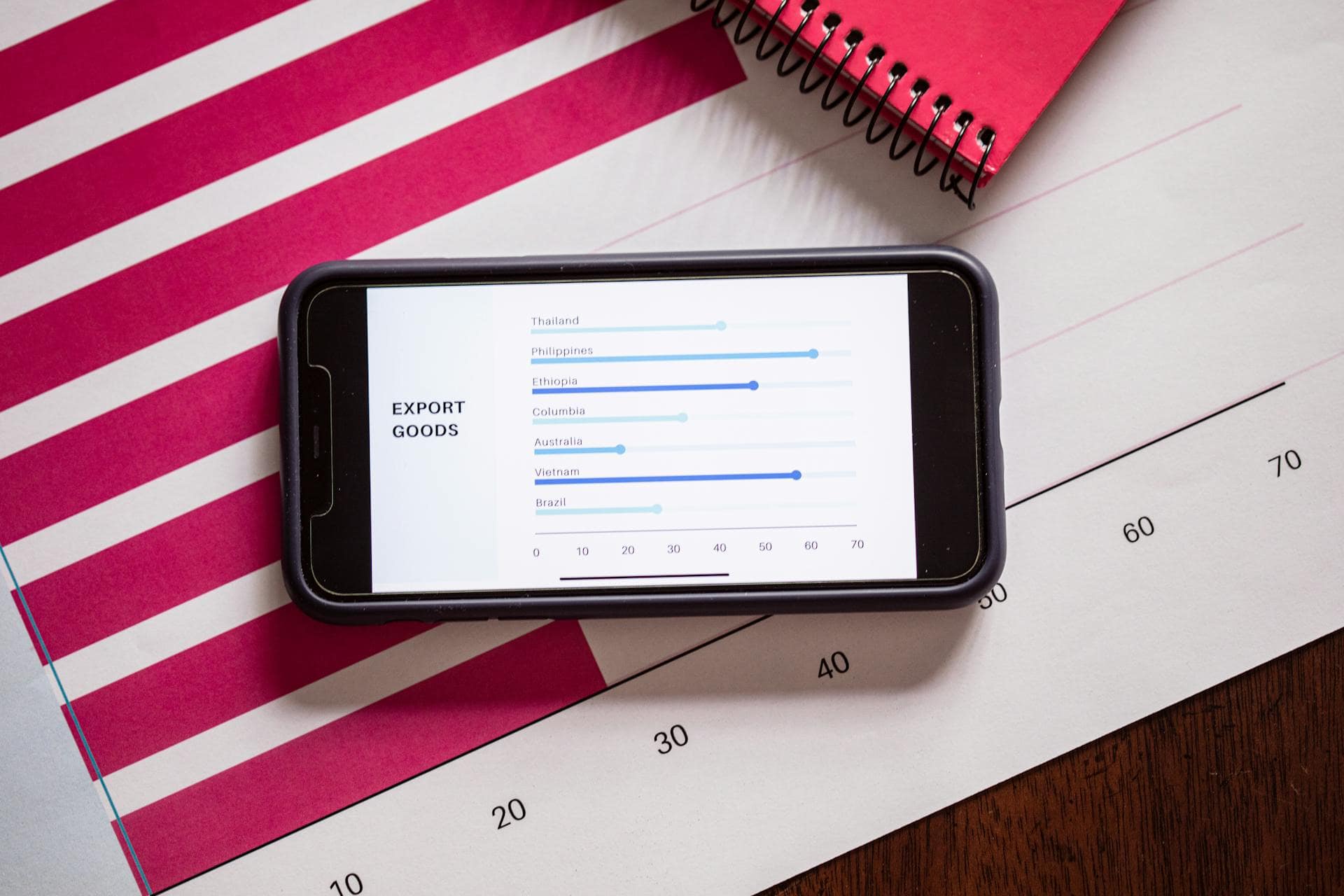Blockchain technology has expanded to countless industries since its initial implementation as a ledger for recording cryptocurrency transactions nearly 15 years ago.
Beyond recording a ledger of Bitcoin transactions, traders are now managing export compliance with blockchain technology. How is trade compliance and blockchain related? What role does blockchain play in enhancing trade compliance and boosting trade transparency?
Before we dive in, let’s get a brief overview of blockchain.
Defining Blockchain for Compliance Purposes
Today’s traders are always on the lookout for ways to simplify operations while boosting security and compliance. Blockchain affords just that opportunity. In simple terms, what is blockchain technology, and how is it relevant to traders?
“Blockchain…is blocks of data linked into an uneditable, digital chain. This information is stored in an open-source decentralized environment, in which each block’s information is confirmable by every participating computer,” explains Stanford University. “It’s designed to have decentralized management instead of the traditional hierarchical systems we’re familiar with. A dispersed structure like the blockchain helps to ensure trust, validity and usability.”
While the concept and technology behind blockchain are rather complex, its application and implementation are very attainable and potentially beneficial for many traders.
The Relevance of Blockchain to Trade
As with all emerging technologies, blockchain has its challenges and drawbacks. However, this technology is expected to have an increasingly deepening impact on global trade.
In a 2018 exploration of the topic Can Blockchain revolutionize international trade? Emmanuelle Ganne, a Senior Analyst in the Economic Research Department at the World Trade Organization (WTO), explored the anticipated impact of blockchain on the logistics industry and international trade, likening the scope of its impact to that of the invention of the game-changing shipping container.
The use of blockchain technology is already impacting the way traders conduct business and approach their workflows. Take supply chains, for example.
Blockchain for Supply Chain Compliance
Incorporating blockchain technology is gaining ground as a new ‘best practice’ for ensuring maximum trade compliance, especially in managing supply chains. How can these two types of chains weave together to create a more compliant trade landscape within your organization?
Using blockchain, traders can effectively keep an immutable – AKA uneditable – record of any transaction from start to finish. That way, importers and exporters can maintain detailed footprints of a product from source to destination. This emerging practice is especially beneficial when trading food and agricultural products, helping foster consumer trust, tracing disease outbreaks to their origins, and mitigating risks.
“Suppliers can use blockchain to record the origins of materials that they have purchased. This would allow companies to verify the authenticity of not only their products but also common labels such as ‘Organic,’ ‘Local,’ and ‘Fair Trade,’” explains Investopedia.
Blockchains can help traders demonstrate due diligence by securely recording critical bits of data that are necessary for customs clearance and regulatory compliance.
Extended Applications for Blockchain in Global Trade Compliance
Beyond the supply chain, how else can traders leverage blockchain in global trade compliance? Blockchain is redefining how traders conduct business by remapping the fundamentals, such as contracts, transferring assets, and record-keeping.
Consider just three ways traders can benefit from incorporating blockchain technology:
- Creating smart contracts – “Another blockchain innovation are self-executing contracts commonly called ‘smart contracts,’” says Forbes Advisor. “These digital contracts are enacted automatically once conditions are met. For instance, a payment for a good might be released instantly once the buyer and seller have met all specified parameters for a deal.”
- Facilitating transactions – “Blockchain-based cross-border payments aim to eliminate intermediaries, reduce costs, and increase the speed and security of financial transactions,” advises the Crypto Council For Innovation.
- Promoting data security – “Blockchain technology excels in moving data securely and transparently. It also offers data safeguards: Records on a blockchain are nearly impossible to alter, making it difficult for a central authority or bad actor to falsify or change information. Blockchain technology is also well-suited to identity verification and data tracking tasks,” says the Better Business Bureau.
The practical applications of blockchain technology are essentially limitless, allowing traders to rethink how they conduct business in the interest of greater efficiency, profitability, and compliance.
How Blockchain Enhances Transparency in Trade
Transactional transparency is a cornerstone of trade compliance. Blockchain serves to enhance transparency through end-to-end record-keeping across your organization.
Blockchain is helping traders increase operational transparency by…
- Promoting vendor and consumer trust – The accurate, public records created by blockchain help vendors avoid transactional disputes and provide consumers with the information they need to build confidence in a brand.
- Demonstrating due diligence – The unchangeable, detailed, shared record achieved by using blockchain allows traders to furnish proof of due diligence in the event of an audit – whether in-house or ordered by a regulatory body.
- Reducing security risks and human error while promoting efficiency – The decentralized model of data verification and the uneditable ledger leaves little room for data manipulation or clerical mistakes while reducing administrative burdens.
Virtually every process in the import-export lifecycle can be touched by blockchain technology, promoting organizational transparency and boosting compliance.
About OCR Services Inc.
OCR Global Trade Management is a leading provider of Global Trade Compliance Software Solutions.Our flagship product Global EASE (suite of solutions for Global Trade Compliance) is used by hundreds of organizations world-wide to ensure compliance and due diligence. With our comprehensive suite of solutions spanning Sanctions & Risk Screening, Export Management, Licensing & Permits, and Import Management, Global EASE is your one-stop destination for end-to-end trade compliance excellence.
Are you ready to discover how our Global EASE™ solution can seamlessly integrate into your organization? Learn more today or contact our team to get started.



